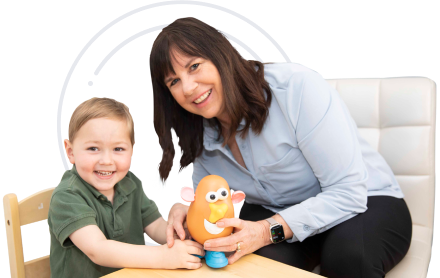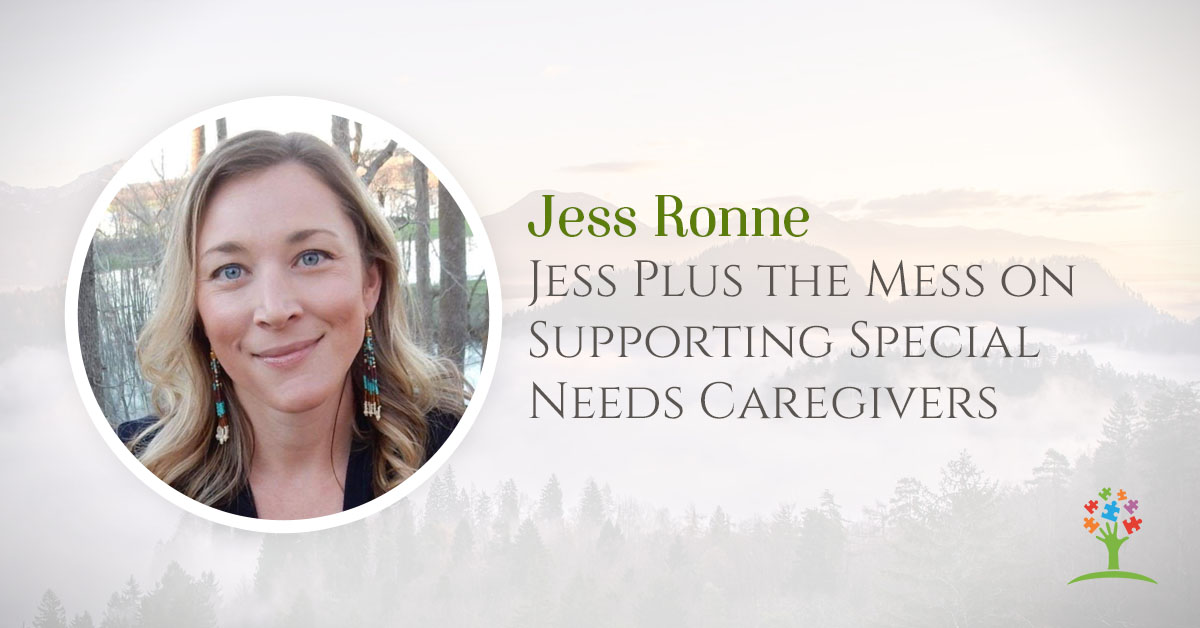Jess Plus the Mess on Supporting Special Needs Caregivers
Want to Learn how to Increase Talking & Decrease Tantrums in Children with Autism or Toddlers Showing Signs?
Want to start making a difference for your child or clients?

If it’s a need and it doesn’t exist, Jess Ronne is probably figuring out a way to make it happen. The blogger, Jess Plus the Mess, joins me today to talk about her books, nonprofit, advocacy journey, and her latest project, the Unseen documentary.
Jess is a mother of 8 and her 16-year-old son Lucas deals with severe special needs as well as a new diagnosis of autism. Jess shares her unique story from her pregnancy with Lucas, his birth, her late husband’s battle with cancer, and her life now as a blended family with her husband Ryan. Her story is beautifully captured in her two books, Sunlight Burning at Midnight and Blended with Grit and Grace, both available on Amazon.
The Lucas Project
The Unseen Documentary
Caring for Caregivers
Even if it was decades ago, I remember friends who reached out and brought a meal or came over for support care. How are you supporting caregivers in your community? How are you educating your friends to support caregivers and their families? Jess and I go over some great suggestions on how to approach offering support that maybe you can take yourself, or offer up to your friends as ideas. The important thing is to not ask “how you can help” but instead offer help in the exact way you know you can, whether that’s bringing a meal, picking up siblings, mowing the lawn, or even dropping by a gift card for take out.
There is some great advice in this podcast, as well as some important topics such as handling life as a caregiver for severe special needs children, relocating for resources, and making the decision for residential care. Be sure to check out her books, as well as check the link for information on streaming, Unseen: Caregiver Documentary Film. You can find Jess on social media as Jess Plus the Mess as well as online or by checking out her website for her nonprofit, The Lucas Project.

Jess Ronne on the Turn Autism Around Podcast
Jess Ronne is an author, speaker, podcast host, documentary producer, and caregiver advocate. She is founder and executive director of The Lucas Project—a non-profit dedicated to providing recognition and respite for special needs families. She and her husband Ryan live in Michigan with their 8 children, including their son Lucas, who has profound special needs. Her story of beauty from ashes has been shared on The Today Show, Daily Mail and Huffington Post and is detailed in her memoir Sunlight Burning at Midnight. To follow the ongoing saga, she can be found at www.jessplusthemess.com or purchase her latest book, Blended with Grit and Grace.
You’ll Learn
- What resources and support are available for caregivers of special needs families?
- How can you support special needs families?
- Jess Ronne’s of Jess Plus the Mess, caregiver story.
- How to find and stream, Unseen, a caregiver documentary.
- How to know if residential care is right for your family.
- How to balance caregiving with special needs and typical siblings.
- How The Lucas Project supports special needs families.
Resources
- Sign up for a free workshop online for parents & professionals
- No More Time Out Mini Course
- Siblings of Autism: Interview with My Son Spencer Barbera
- Severe Autism: Interview with Amy Lutz
- Jill Escher: Why Has the Rate of Autism Increased?
- Autism Grandparents: How to Be Supportive
- Autism Living Facilities and Out of Home Placement | Interview with Lisa C
- Autism Action Month: Severe Autism Edition | Psychology Today
- The Lucas Project
- Jess+TheMess
- Sunlight Burning at Midnight
- Blended with Grit and Grace: Just Keep Livin’ When Life is Unexpected
- Unseen: Caregiver Documentary Film
Want to Learn how to Increase Talking & Decrease Tantrums in Children with Autism or Toddlers Showing Signs?
Want to start making a difference for your child or clients?
